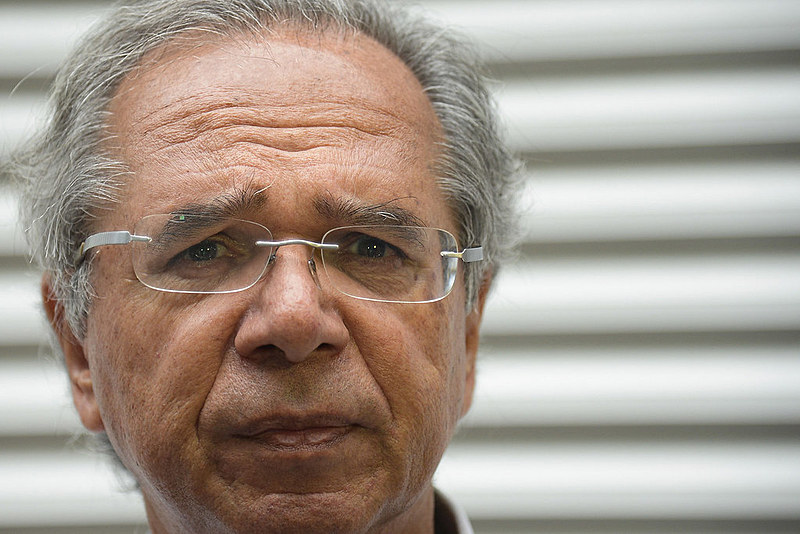RIO DE JANEIRO, BRAZIL – Economy Minister Paulo Guedes on Thursday defended the reduction of Mercosur’s Common External Tariff (TEC). “In the world, the average tariff is 4%, and Brazil has a tariff of 12% or 13%,” he said in the Senate Foreign Relations Committee meeting.
Since the beginning of the Bolsonaro government, there has been the view that it is necessary to conclude an agreement with Argentina and modernize Mercosur, otherwise “this instrument does not make sense for us,” the minister said.

He referred to the upswing in trade agreement negotiations that had taken place in Argentina under the government of Mauricio Macri. The two countries have made simultaneous requests for access to the OECD, he explained.
“We still think Mercosur is a great platform, but this instrument needs to be modernized,” he argued.
Guedes said Brazil should not be a prisoner of an institutional arrangement that decreases trade. He said the modernization of Mercosur must take place in the next six months. Cutting the TEC by 10% would be the first step.
“We don’t want a veto clause,” he said. Brazil’s proposal to cut TEC by 10 percent is opposed by Argentina. Mercosur decisions are made by consensus. But, he said, Brazil should not stay where Mercosur rules, but the bloc must be comfortable for the country.
“We will open the economy very cautiously, but we must give a signal now,” he said. “This is the ideal moment; it is the right time. South America today is a continent of hopelessness,” he said. “We want to go down the path of prosperity.”
The minister explained that the Brazilian proposal to reduce TEC by 10% is supported by Uruguay, “the big protagonist,” and Brazil. “Paraguay is undecided, and the Argentines are against it,” he related.
Guedes said Brazil understands Argentina’s “severe” problem, which has “a problem with the IMF” and may need more time to open up.
If Mercosur were a free trade area instead of a customs union, members could negotiate bilateral agreements, he said. Currently, Brazil has the disadvantage of having neither a modernized Mercosur nor a free trade area.
MERCOSUR FAILED TO IMPACT THE GLOBAL ECONOMY
Mercosur has failed to increase its relevance in the world market. Intraregional trade has declined thanks to a domestic-centered institutional design, which has prevented it from enforcing its trade regulations, alongside the lack of political will from the national governments.
According to the World Bank, Mercosur’s intra-regional trade share represents only 13% of its member’s total trade. This figure showcased the decrease of interregional trade, in correspondence with the 1990 figure of 21%.
In parallel, the EU interregional trade has remained over 60% since 1990. Mercosur, which was born emulating EU aspirations and policies, could not have a more different result.
Today, we live in a world where Regional Trade Agreements (RTA) account for over 60% of global exports of manufactured goods. More importantly, this figure had not stopped growing since 2001 when it represented 36%.
In addition, Mercosur has been ineffective to link itself to the international global values chains or crafting a cohesive common trade policy. As proof of that, national governments are willing to adventure in a bilateral trade deal to improve their international position, which constitutes a contradiction to the spirit of belonging to a common regional trade block.
Mercosur seems to have a severe problem of identity, thus creating mistrust and lack of credibility, both domestically and at the international level.
That is why many think Mercosur might be soon dispensable. Even though improvements have been made, Mercosur’s failure to make an impact on the global economy weighs heavily.

